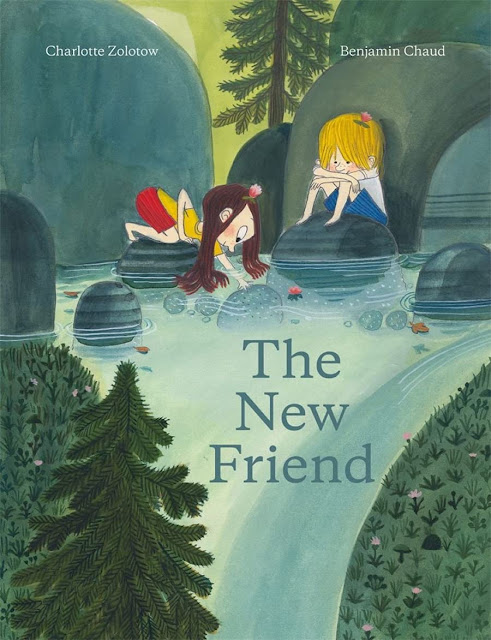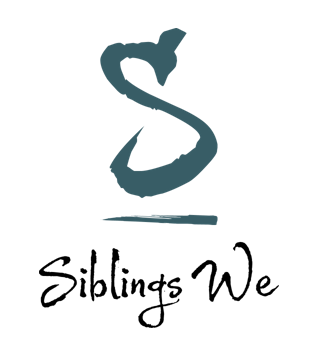
The New Friend
by Charlotte Zolotow
illustrated by Benjamin Chaud
Review Copy from Abrams Kids
Charlotte Zolotow (1915 – 2013) was a writer, poet, editor and publisher. She had her own imprint at HarperCollins and the Cooperative Children’s Book Center created an award in her name in 1998 that honors the author of the best picture book published each year. As her obituary in The New York Times notes, Zolotow stood out for plumbing "children’s interior lives, often ranging over loneliness, loss, longing and other painful topics that earlier generations of children’s books had either sugar coated or ignored outright." While children’s books have evolved to address myriad experiences and emotions from increasingly diverse perspectives over the last fifty years, Zolotow’s work remains relevant, although diversity in the illustrations would be welcome.
Originally published in 1968, I began reading, despite having read (and owning) other books by Zolotow, expecting a simple story. The New Friend reads like a poem, beginning, "I had a friend / a dear friend / with long brown hair. / We walked together in the woods / and picked wildflowers." An idyllic friendship unfolds in a woodland wonderland. The pair watch the rain from the attic and run barefoot in the grass when the rain is over. They pick apples straight from the tree and even eat the seeds. They joke and jump rope, string beads and read together, "me and my friend."
Chaud does a lovely job creating a visual story that partners with the text, enriching and deepening the story page by page. On the spread where we see the friends reading books together, they have created an oasis in the woods. Blanket on the ground, another tented overhead, a tea set and tools, flashlights and snacks, fairy lights and strings of beads, decorating their hideout. A fox mask and a bluebird mask hang on a nearby tree, soon to become integral to the story.
With a page turn, the story takes a turn. Revealing a sad, hard fact of friendship, childhood or otherwise, this marks the moment that gives the book its title. The narrator tells readers, "One day, I called for her / but she wasn’t there." Walking to their hideout, the narrator sees the friend with someone, a "different friend." Here, wisely, cleverly, Chaud chooses not to show the face of the new friend, keeping the focus and the intensity of feeling on the narrator, who watches as the new pair of friends explore their old places. The new friends even wear the fox and blue bird masks. Devastated, the narrator heads home and cries. In fact, they (the gender of the narrator is not specified in the text), "cried all day and cried myself to sleep."
Once in bed, the narrator dreams a new friend – a friend in a rabbit mask, face obscured. Dreaming this new friend revives the narrator who, upon waking, is determined to "look for that new friend / and when I find her / I’ll remember my first friend / my dear friend / with long brown hair." In a moment that captures the immediacy of childhood, or, maybe more accurately, the hindsight of an adult reflecting on a childhood experience, the narrator finishes the thought (and the book) with these words, "But maybe then / I won’t care!"
A perfect ending, free of sentimentalization.
November 11, 2021 at 02:02PM Tanya









